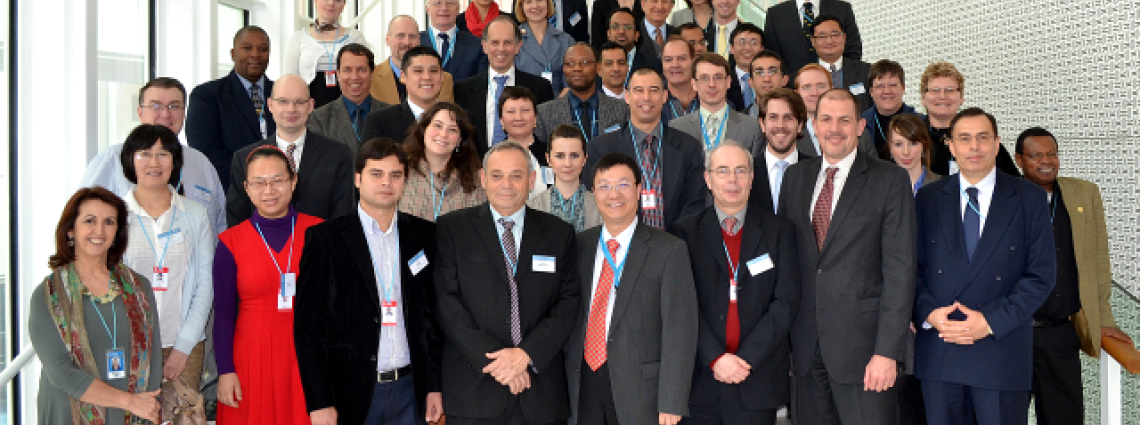Academic Forum: CTBT Education in the 21st Century
“The world today is closer and more connected than it has been ever before in history… (and) common aspirations and challenges will be met not only in the establishment of the institutions but through the development of networks of knowledge,” said Ahmet Üzümcü, Director-General of the Organization for the Prohibition of Chemical Weapons, in an opening address. The Forum was supported by voluntary financial contributions from the European Union and Norway.
CTBTO Executive Secretary Tibor Tóth opens the 2013 CTBT Academic Forum.
Ahmet Üzümcü, OPCW Director-General, at the opening session of the 2013 CTBT Academic Forum.
The future of learning
Academics openly debated the benefits and challenges of e-learning as an educational technology, with consensus gathering around the idea that the future lies in ‘e-assisted’ learning.
Matt Yedlin (Professor of Electrical Engineering at the University of British Columbia, Canada) during a lively working group discussion.
Academics run CTBT courses across the globe
Ekaterina Mikhaylenko described how she runs a course for political science students at Urals Federal University in Russia, using a combination of e-learning and classroom discussions. Celso Vargas informed participants about a course on the CTBT and its verification regime that he has organized at the Costa Rica Institute of Technology, including a simulation and student research assignments on the CTBT’s verification technologies. Liz Dallas also shared the experiences of the Georgia Institute of Technology in the United States in holding an interdisciplinary seminar series on the CTBT, for which students completed directed research projects. Tahir Nazir, a research fellow at the South Asian Strategic Stability Institute, shared the draft curriculum of an extensive course on the CTBT offered in Pakistan.
The Academic Forum is the second such meeting of the Test-Ban Academic Network (T-BAN) to promote CTBT education through curricula development and innovative teaching methods. It follows up on the Intensive Seminar on CTBT Education that was held in June 2012.
Participants in a working group discuss the use of online platforms for engaging broader academic communities in CTBT education.
Academics draw on their expertise to suggest ways the CTBTO can collaborate with researchers in its education and outreach activities.
Web portal for academic exchange launched
Some 40 academics and researchers gathered to discuss CTBT education in the 21st Century.
28 Mar 2013
